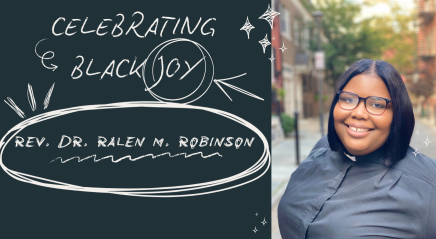In 1960, Walt Disney released the movie Pollyanna, starring Hayley Mills. As a little boy, I was madly in love with Hayley, even though she never returned my letters.
In the movie, the pastor (Karl Malden) delivers a chandelier-shaking sermon one summer Sunday, coinciding with the emergence of many funeral home hand-held fans for a congregation sweating bullets. An excerpt:
“Now you say, I had not intended it to come now. I had laid out matters otherwise. I thought my scheme good, but death came unexpectedly … like a thief, outwitting me, too quick for me. And now he will deal with you—now the great King of heaven and earth will abolish and annihilate this pride! In hell you will be reserved in chains of darkness forever and forever, with nothing to relieve you—no comfort. No water for your parched tongues, no place to rest or take a breath!”
Lest you think such preaching is blessedly outdated, consider a funeral service I recently attended where the pastor thundered, “We’re all gonna live forever!” He repeated the phrase three times, and then: “But some of us in heaven and some of us in hell. You make the choice, people!”
•••
Jesus said, “I am the gate. Whoever enters by me will be saved” (John 10:9). There is perhaps no more loaded five-letter word in Christian parlance than “saved.” “Brother, are you saved?” “Let go of that pew, sister. Hit your knees and get saved!”
The implication is that we’re saved from something: from hell, everlasting torment, a coming calamity in the distant future. A common theological assumption: Jesus is not only the gate—he’s also the gatekeeper.
There is perhaps no more loaded five-letter word in Christian parlance than “saved.” “Brother, are you saved?”
I was dining at a Red Lobster in Tennessee once when a severe tornado struck a few miles from the restaurant. Golf ball-sized hailstones fell from the sky and dented cars in the parking lot. The restaurant manager herded everyone to a spacious men’s room where we huddled and waited. Our waitress was weeping and couldn’t be comforted. We had no idea what was happening just south of us but knew it was probably bad.
Is this what the Bible means by “salvation”? That if I believe in Jesus—huddled closely among “the saved”—the coming storms of God’s wrath will pass by me?
•••
There are a couple additional (and usually overlooked) claims in John 10:9. I am the gate. Check. Whoever enters by me will be saved. Check. They will come in and find pasture. Check. They will go out and find pasture. Oops—now, wait a minute. Go out and find pasture? Aren’t believers supposed to get through that gate, huddle together and wait patiently for heaven?
What does it mean to be “saved” by Jesus? We are gathered in. We are sent out. It’s a rhythm sounding a lot like the flow of our liturgy.
Salvation is not some future status bestowed on the well-behaved after death. Salvation begins now. We are saved for a particular calling from God, a specific purpose. The call begins with baptism.
•••
I suspect you know a fair number of people who’ve rejected Jesus and his church because they grew up with a pastor like the good reverend in Pollyanna, listening to a regular Sunday diet of threats and future punishment.
My favorite part of Psalm 23 is: “Goodness and mercy shall follow me all the days of my life.” In Hebrew, it’s even better. The verb “follow” is closer to the idea of pursue. Goodness and mercy are always chasing us. This old psalm reveals much about what it means to be “saved.”
Gordon Cosby (1918-2013), a pastor in inner-city Washington, D.C., worked with people others had largely given up on. “God,” he wrote, “has not created a single person whose essence and uniqueness are not eternally needed.”
Christ tails us with lifesaving gifts. I suppose we can always choose to reject them. An existence indeed hellish.








